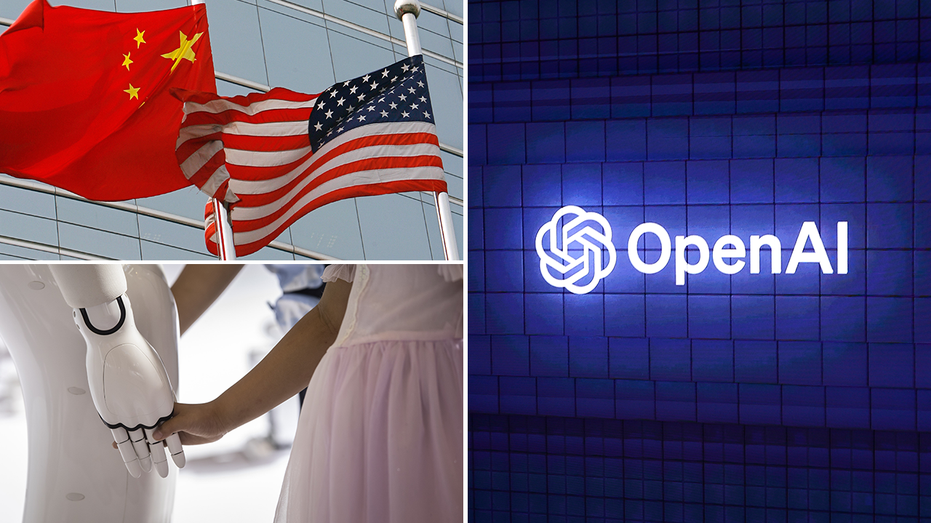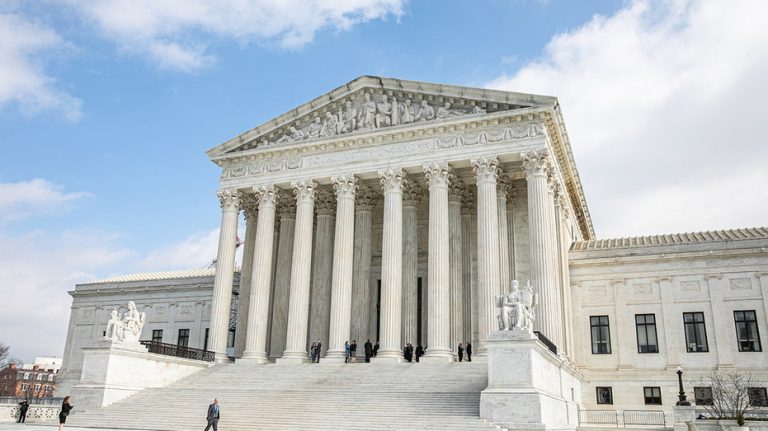OpenAI is staking out a plethora of new artificial intelligence (AI) policy proposals that the research organization believes will help the United States maintain its lead over the Chinese Communist Party (CCP).
On Monday, OpenAI revealed the details of its AI “Economic blueprint,” which the company hopes will be adopted by the incoming Trump administration and Congress. The blueprint will serve as a “living document” for responsible AI building and deployment.
Speaking with Fox News Digital, Open AI’s Vice President of Global Affairs, Chris Lehane, said it is “absolutely imperative” that the U.S. stays in command of AI innovation and production.
“One country, the U.S., is building democratic AI. It’s free. It’s accessible. The other is going to build authoritarian, autocratic AI. And this is really like a zero-sum race,” Lehane said.
Foreign competitors and adversaries have made clear that AI is a key component of economic and militaristic dominion.
The CCP has said that it wants to be the supreme player in AI by 2030. Meanwhile, Russian President Vladimir Putin has gone on record, stating that whoever wins the AI race wins the world.
“The U.S. has the lead right now,” Lehane told Fox News Digital. “That lead is not guaranteed, and we absolutely need to do everything we can be doing to make sure we maintain that lead. And so, a lot of the policies that are laid out in [our economic blueprint] are designed to do that.”
OpenAI notes that an estimated $175 billion is sitting in global funds — awaiting investment in AI projects.
“If the U.S. doesn’t attract those funds, they will flow to China-backed projects—strengthening the Chinese Communist Party’s global influence,” the economic blueprint states.
They also believe that rules and regulations for the development and use of AI should be based on the democratic values that the United States has always upheld.
“We believe in America because America believes in innovation,” OpenAI says.
To ensure competitiveness and security, OpenAI says the U.S. government should enable AI through “common-sense rules” to protect people from “actual harms.”
“To us, this means that in the same way the federal government helped clear the way for the nascent automobile industry to grow, including by preempting a state-by-state tangle of roads and rules, it should clear the way for the AI industry’s development of frontier models to best ensure that they promote U.S. economic and national security,” OpenAI says.
The company notes that “frontier models” refer to state-of-the-art language models that can be responsibly exported to U.S. allies and partners, allowing them to establish their own AI ecosystems and distribute potential benefits.
Led by the federal government, in consultation with industry, OpenAI says this strategy should develop best practices that streamline engagement with national security departments and agencies while protecting against the risk of criminal, terrorist, and state-sponsored misuses.
OpenAI also calls on the government to “develop alternatives to the growing patchwork of state and international regulations that risk hindering American competitiveness.”
AI IS RESHAPING HOW WE LIVE AND WORK – HERE’S HOW TO USE IT EFFECTIVELY
This includes having the federal government lead the development of national security evaluations at home while establishing an “international coalition” to create “shared safety standards” abroad.
To achieve maximum gain and reduce harm, OpenAI says the government must get AI access and benefits “right from the start.” The company, which dubs this idea as the “rules of the road,” believes a successful approach will create a “flywheel of growing prosperity and appreciation for democratic values.”
“With AI, our children will be able to do things we can’t, and eventually, everyone’s lives can be better than anyone’s life is now. But we have work to do to get there,” OpenAI stresses.
With wider AI deployment in the U.S., OpenAI suggests that the technology will gain trust among the general populace. Users, the company says, should feel confident that their children will be protected from potential harm, they will know where content comes from, and they will be able to tailor AI tools to their liking.
OpenAI says states also have a “vital role” to play in AI.
“They can fill their historical role as laboratories for democracy by supporting experimentation with AI, including by start-ups and smaller AI firms, to identify ways to solve people’s daily hard problems in areas like education and healthcare. They can support their government workers and developer communities experimenting with AI to identify ways to improve the lives of their taxpayers,” the economic blueprint states.
Lehane says that states can also support AI literacy programs in school systems across the U.S. — enabling the next generation of developers to build solutions for future problems.
“Those developers don’t necessarily have to be in San Francisco, right? Those developers can be in Kansas. Those developers can be in Alabama. Those developers can be in my home state of Maine. I mean, there’s incredible talent in these places. If they get access to the education on this, then they’re able to build, you know, in the places that they grew up,” he said.
The company highlights that these proposals reflect their position that chips, energy and talent are the keys to winning on AI—and “this is a race America can and must win.”
“We can’t get the national security piece right and we can’t get the economic distribution piece right if we don’t get infrastructure. It is just foundational and fundamental to the other two pieces. The other two pieces just become a little bit, you know, sort of abstract and intellectual or aspirational,” Lehane told Fox News Digital.
OPENAI CEO SAM ALTMAN RINGS IN 2025 WITH CRYPTIC, CONCERNING TWEET ABOUT AI’S FUTURE
OpenAI says that building infrastructure is not just “vital” for ensuring that AI worldwide is based on U.S. technology but also an “unmissable opportunity” to create a “reindustrialization” of the country.
The AI research organization believes that this infrastructure will drive down the cost of compute — a term for the technology and resources that powers AI — make it abundant, and, in turn, create tens of thousands of skilled-trade jobs, boost local economies and modernize the energy grid.
The company’s infrastructure proposal includes digitizing government data currently in analog form, a compact for AI among U.S. allies and partner nations, the creation of AI economic zones, the creation of AI research labs and workforces and federal backstops for high-value AI public works.
The plan would also include a dramatic increase in federal spending on power and data transmission and streamlined approval for new lines. This would be accompanied by the creation of a “National AI Infrastructure Highway” to connect regional power and communications grids.





